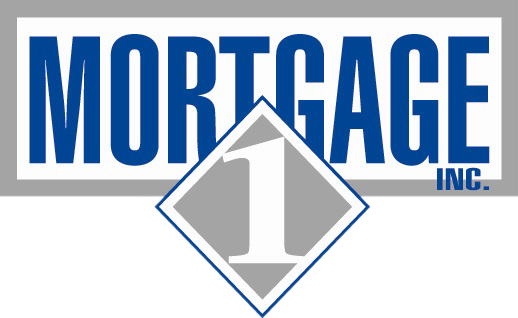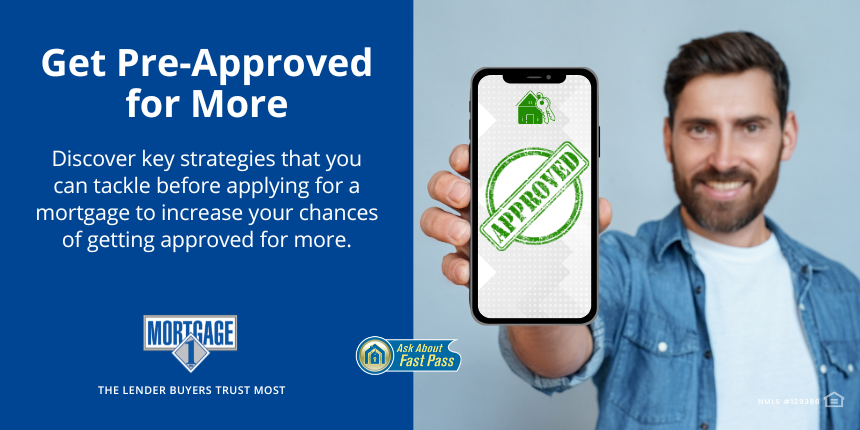
MSHDA Announces 10K Michigan Down Payment Assistance Statewide
May 11, 2023
Mortgage 1’s Dan Grzywacz, Recipient of the 2023 James T. Barnes Memorial Award
July 25, 2023Obtaining a mortgage as a self-employed individual can be a challenging endeavor for many independent professionals. Navigating the complexities of this process requires an in-depth understanding of various factors that lenders consider when evaluating self-employed applicants.
To help you increase your chances of getting approved for a mortgage as a self-employed borrower, we’ve compiled essential information and tips to guide you through the process.
| Do You Qualify for a Mortgage? See if you meet the mortgage loan requirements as a self-employed professional. Call us at 1-866-532-0550 or get preapproved today with our easy-to-use digital preapproval app. It takes as little as 15 minutes. |
Mortgage Loan Requirements for Self-Employed Individuals
When it comes to obtaining a mortgage as a self-employed individual, gathering the necessary personal and business financial information is crucial for a successful application. Lenders require specific documentation to assess the eligibility of self-employed borrowers. Here’s a breakdown of the key documents that lenders typically look for during the qualification process.
Income Documentation
To prove a stable and sufficient income, self-employed borrowers must provide the following documents:
- Personal and business tax returns from the past two years
- Tax schedule forms related to your business returns: Depending on the structure of your business, you may need to include various tax schedules such as Schedules K-1, 1120, 1120S
- Year-to-date profit and loss statement (P&L)
- Balance sheet
Employment Verification
In addition to income documentation, you may be required to provide proof of employment through the following documents:
- State or business licenses
- Proof of insurance for your business
- Emails or letters from current clients
- Emails or letters from your certified personal accountant (CPA) or tax preparer
Remember, each lender may have specific requirements, so it’s essential to consult with them directly to ensure you have all the necessary documentation for your specific situation.
How to Better Qualify for a Mortgage if You Are Self-Employed
Qualifying for a mortgage as a self-employed individual requires some additional effort, but it is certainly possible. To improve your chances of approval, there are a few key steps you can take.
Lower Your Debt-To-Income Ratio
When applying for a mortgage as a self-employed borrower, it’s important to have a debt-to-income (DTI) ratio of 43% or lower. To lower your DTI ratio, consider implementing the following:
Increase Your Credit Score
Boosting your credit score is crucial for securing better loan terms and a wider range of mortgage options as a self-employed borrower. Here are some tips to improve your credit score:
- Pay your bills on time
- Reduce outstanding balances.
Get a Co-Signer
If you’re struggling to qualify for a self-employed mortgage on your own, consider finding a co-signer to boost your eligibility. A co-signer is someone who agrees to take on responsibility for the loan if you default. Here’s what you need to know about co-signers:
- Responsibilities of a co-signer: A co-signer is responsible for making payments if you default on your loan. Any late or missed payments on the mortgage could affect their credit score.
- Finding an appropriate candidate: Find someone with a strong credit history and stable income.
Offer a Larger Down Payment
Lenders place significant importance on borrowers who have higher-than-usual equity in their homes, as they are seen as less likely to default on their mortgages. By having a higher equity stake, borrowers have more to lose in the event of default, making them less likely to walk away from their mortgage obligations. This increased financial stake creates a sense of responsibility and motivates borrowers to prioritize their mortgage payments.
Lenders view this as a positive sign, as it indicates the borrower’s financial stability and commitment to maintaining their homeownership.
Separate Your Business Expenses
To simplify the mortgage process and avoid complications, it’s important to separate your business expenses from your personal finances. Mixing personal and business finances can increase your debt-to-income (DTI) ratio, potentially impacting your mortgage eligibility.
To organize your accounts effectively, consider the following tips:
- Create a dedicated checking account exclusively for business transactions.
- Open a separate savings account to set aside funds specifically for down payments or other mortgage-related costs.
- Avoid using personal credit cards for any business-related purchases or vice versa.
A Mortgage Lender for Self-Employed Borrowers
At Mortgage 1, we can help you find the best mortgage loan option that fits your needs. Contact us today to learn more about your options or start the pre-approval process using our trusted Pro SNAP app.





